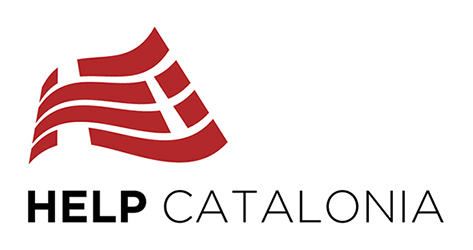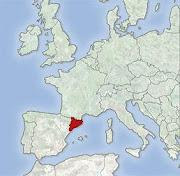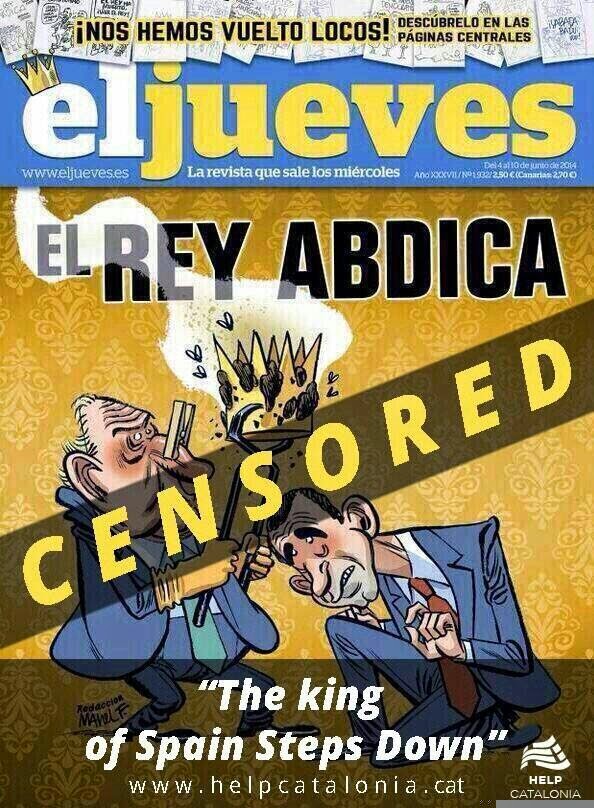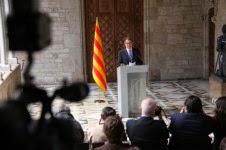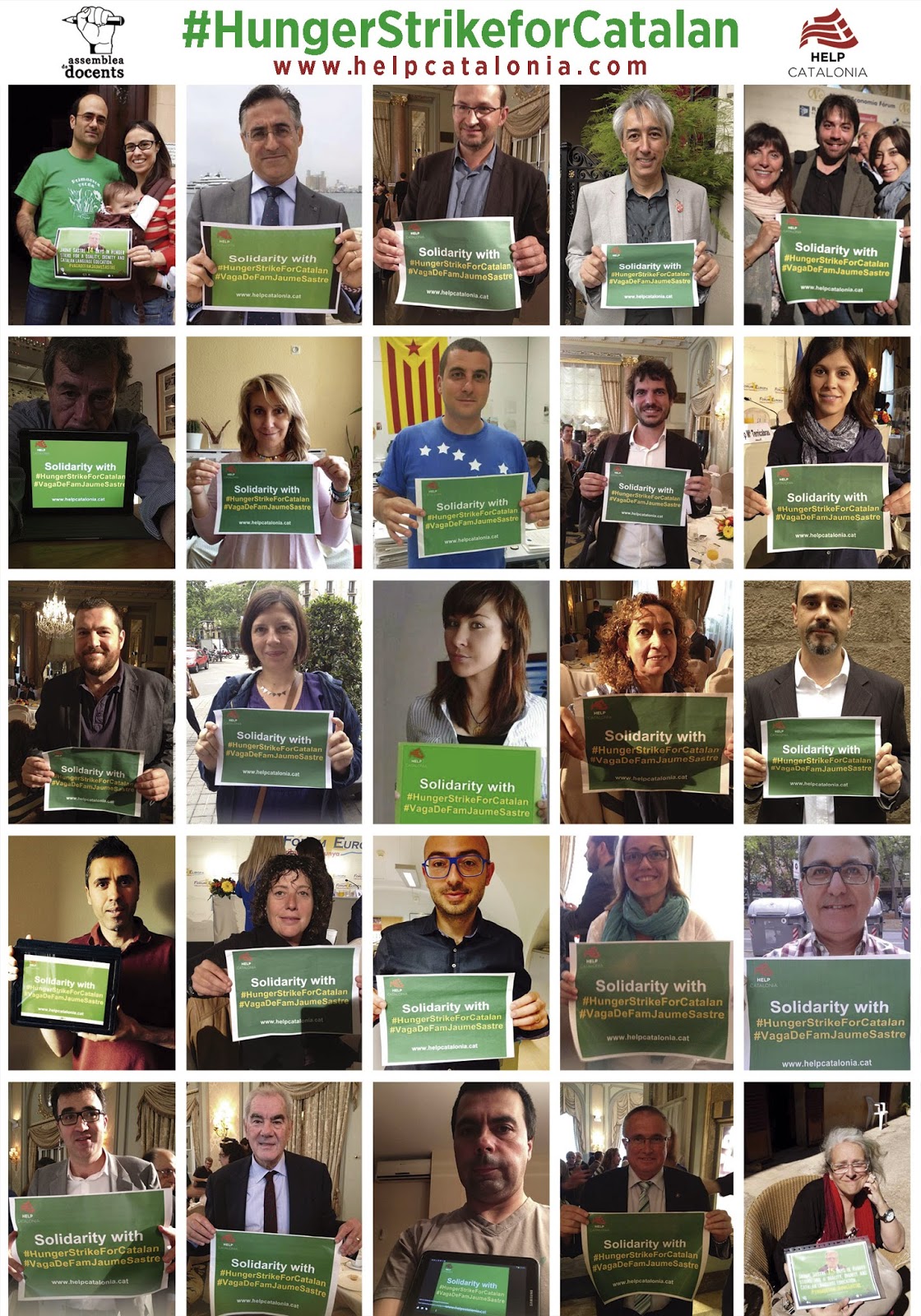I recently visited Catalonia, and my emotions were precisely the ones that led to me to want to rephrase a once well-known song and sing “Freedom is in the air. Everywhere I look around, freedom is in the air!” Upon arriving at the capital city of Catalonia, you noticed not just the fabulous architecture of the city, but also the fact that countless Catalonian flags are fluttering from windows and balconies. True patriotism is sparkling in the air, and Catalonians clearly express their hope to experience Catalonia as an independent country.
These emotions are very much the same as those that existed in Latvia in 1990, one year before the restoration of the country’s independence. People have the same hopes and beliefs. Back then, the international situation was very unclear, there was no clear international support, and the Soviet regime made threats and placed enormous pressure on every country which tried to support the Baltic efforts to restore independence. Even leaders in major democratic powers were sunk into short-sighted calculations of Realpolitik, trying to bargain with the Kremlin, as opposed to recognising the true desire of the Baltic peoples for true independence. Today, these leaders are shyly trying to forget their historical short-sightedness. True friendship is tested in difficulties, and they did not pass the exam. Luckily, there were true sympathies and trust in the ideals of democracy in the parliaments and societies of those countries. People harshly denounced the cowardice of their leaders, and at the end of the day, the Kremlin was shown its proper place. The dreams of a free and independent country of the Baltic States – Estonia, Latvia and Lithuania – were fulfilled.

As one walks down the lovely streets of Barcelona, one has no doubt at all that this is truly a capital city in terms of spirit and essence. It is an impressive city with a truly European scope in the best sense of the word. On every step, you feel a culture and history that have been shaped for centuries. When visiting this beautiful city, you automatically think about why the 7.5 million Catalonians who are a large, ancient and proud European nation should prove something or ask for permission to vote in a referendum on their independence. Why does such a large European nation need to prove in the 21st century that it can survive without the protection of its “big brother”? Numerically smaller nations such as Norwegians, Finns, Danes, Estonians, Latvians and Lithuanians see independence as self-evident, and no one dares to question it.
Spain, of course, is claiming that life will be better for everyone if Catalonia remains together with Spain. In truth, hardly anyone doubts that, and it appears that Catalonia does want to stay together with Spain, but as an independent and equally worthy member state of the European Union. Can it really be said that the Catalonians do not deserve such an opportunity? If the Catalonians vote for independence, then that will be an historical opportunity for Spain to help its brethren in successfully joining the EU. The fact that Catalonia and Spain will be separate member states will in no way affect their partnership or their historical links. That will be confirmed by any other EU member state. Transfrontier economic co-operation has developed to the point where people basically do not feel borders at all. This is better for businesses and working people, because they can choose countries where there are better tax rates or labour conditions. Countries are forced to become far more active in terms of competing in this regard. The only problem may be language barriers, but these are diminishing, and in the case of Spain and Catalonia, that obstacle will not exist at all. For that reason, the idea of staying together seems to be nothing more than a formality. If Catalonia becomes an independent member state of the EU, then it will still be together with Spain – hopefully as a good friend, respected neighbour and provider of support at decisive moments. Of course, that will only happen if Spain overcomes its pride and shows true good will.
There has been a fairly harsh exchange of words between Madrid and Barcelona. Officials in Madrid have even begun to compare the situation in Catalonia to that in Crimea and Ukraine. That is an insane comparison. Does Madrid really lack more sensible arguments? Comparing Catalonia to Crimea is the same as comparing Norway to Somalia. Does that sound like an exaggeration? No, indeed! Catalonia has a peaceful and absolutely civilised democracy, and in this sense it really does remind one of Norway. The pseudo-referendum in Crimea, in turn, was held under the barrels of Kalashnikovs and the violent attack against and sinking of ships, just as is the case with Somalia. Putin’s “little green men” are essentially behaving in the same way as Somalian pirates.
The truth is that an independence referendum in Catalonia would be an excellent way for Europe to demonstrate to the Putin regime how a truly democratic national vote can be organised in accordance with the best traditions of European democracy. The world would see what true democracy and a recognition of the right of nations to self-determination really mean. Brussels, Madrid and Barcelona have a unique opportunity to demonstrate true European values in practice.
While visiting Catalonia, I thought of another comparison to the situation of the Baltic States during the Soviet era. The Soviet Union turned the Baltic States into a “grey zone” for the rest of the world. Very few people in the world even knew about Estonians, Latvians and Lithuanians. The prevailing view was that we were all Russians. Latvians had to spend a long time in explaining that they were not Russians; they were Latvians with their own and very different language, culture and history. There is nothing wrong with the Russian nation as such, but only by recovering our independent country could we fully confirm our identity to the rest of the world. No one in the civilised world needs an explanation about what Barcelona is, but people still have very little knowledge about the Catalonian nation. On an everyday basis, the Catalonians are still put in the same sack as the Spaniards. Even during the 21st century, very few Europeans know about the 7.5 million Catalonians. They have to explain and prove again and again that they are not Spaniards. Any self-respecting nation must live in harmony with its identity. There can be no “grey zones” of the Soviet type in modern-day Europe.
People in Latvia deeply believed in 1990 that they would achieve independence and freedom. These hopes wove throughout the nation. One year later, in 1991, Estonia, Latvia and Lithuania regained their independence. That was not only an historical coincidence. It was a long and convincing path in which the Baltic people believed from the bottom of their hearts. Freedom is in the air in Catalonia, too. The Catalonians do not need to beg for self-determination. They deserve it.
Because in Catalonia, everywhere I look around, freedom is in the air.
Barcelona photo by Jonas Oehman.
Otto Ozols is a Latvian writer and publicist, the author of the 2011 Latvian best-seller ‘Latvieši ir visur’ and other book - “Theodorus. Dance with an Elephant-fish”. Has published over 200 articles and essays on politics, economics and culture.
